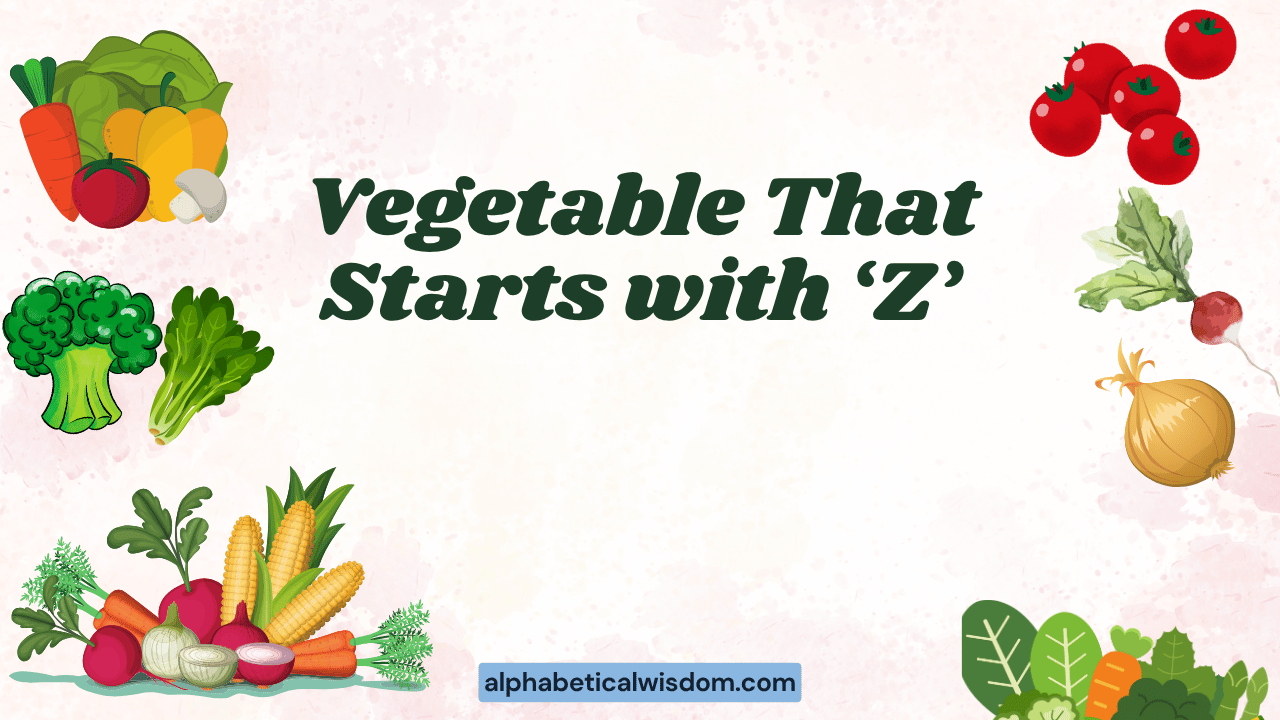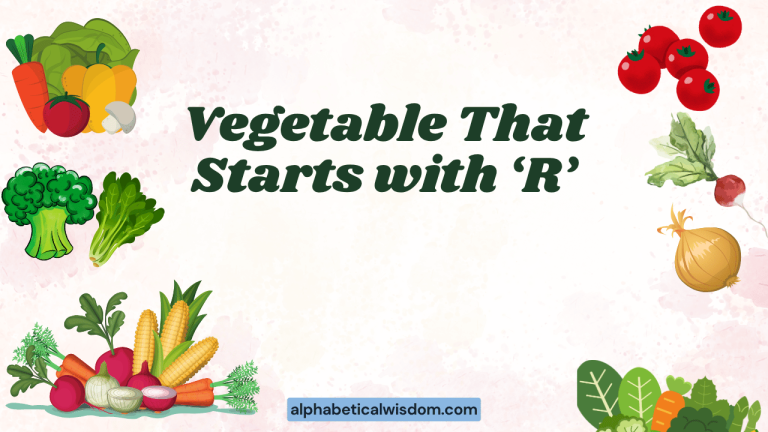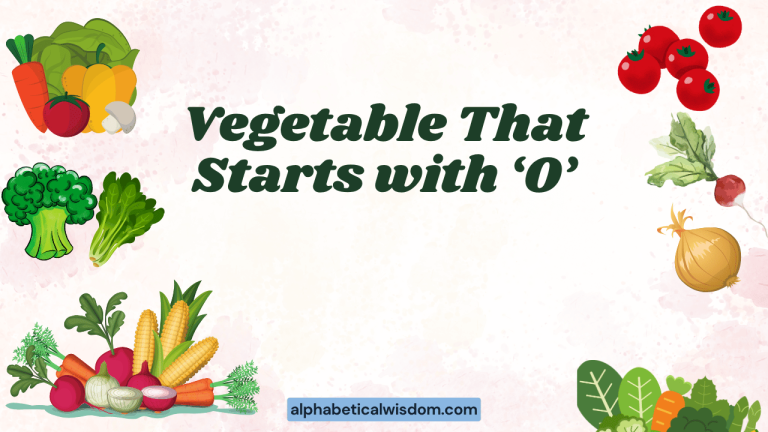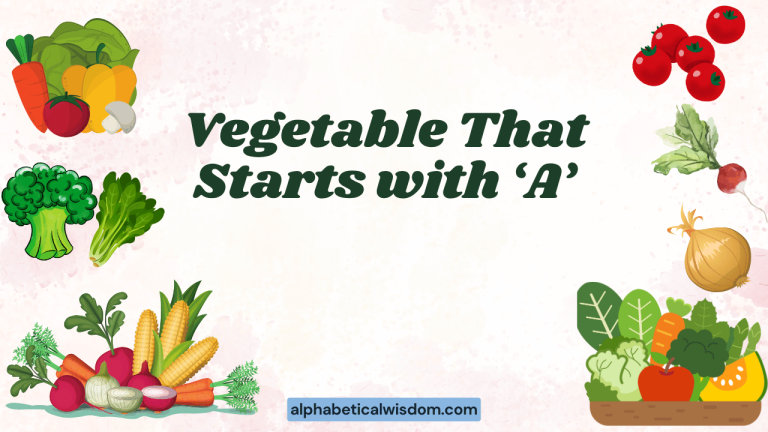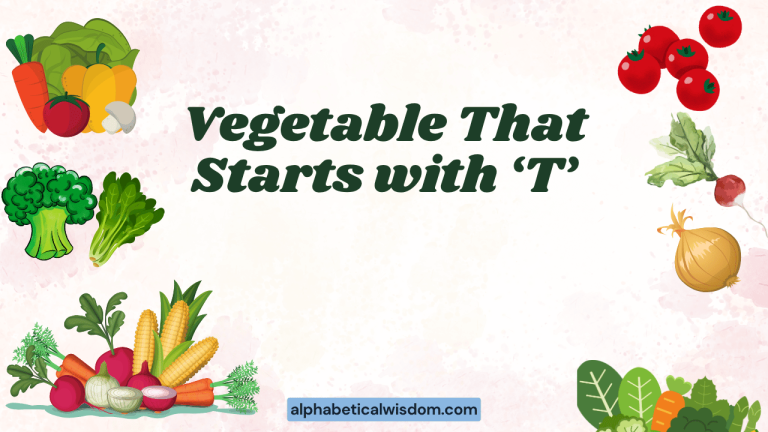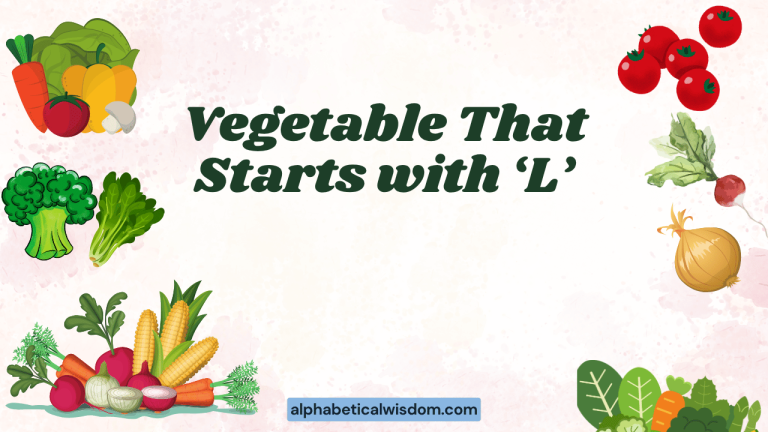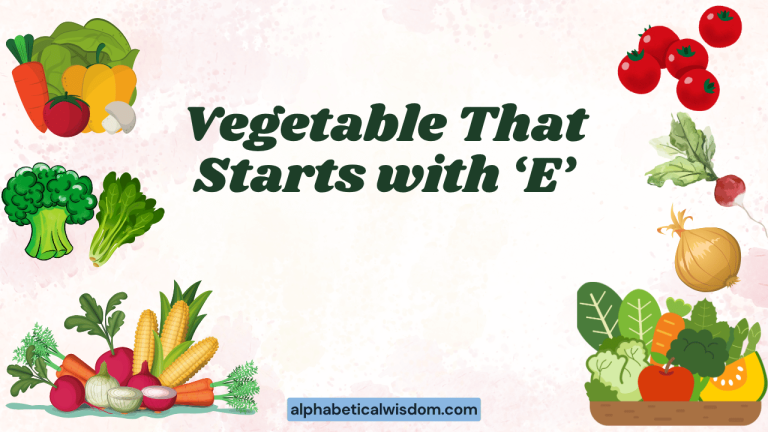Vegetables That Start With Z: A Grammatical Deep Dive
Exploring the grammatical aspects of naming vegetables, especially those starting with the letter “Z,” might seem like a niche topic. However, it offers a unique lens through which to understand noun classification, article usage, and the nuances of vocabulary.
This article delves into the world of “Z” vegetables, providing a comprehensive guide for English language learners and enthusiasts alike. We will explore definitions, usage rules, common mistakes, and practice exercises to solidify your understanding.
Whether you are a student, a teacher, or simply curious about language, this exploration will enhance your grammatical skills and vocabulary.
Table of Contents
- Introduction
- Definition of Vegetables and Nouns
- Structural Breakdown of Noun Phrases
- Types of Nouns: Countable and Uncountable
- Examples of “Z” Vegetables in Sentences
- Usage Rules for Articles with Nouns
- Common Mistakes with Noun Usage
- Practice Exercises
- Advanced Topics: Uncommon Vegetables
- FAQ
- Conclusion
Definition of Vegetables and Nouns
A vegetable is defined as a plant or part of a plant used as food, typically savory rather than sweet. This broad definition encompasses various plant parts, including roots, stems, leaves, and fruits (though botanically, some vegetables are fruits). Understanding this definition is crucial when identifying and classifying vegetables.
In grammar, a noun is a word that represents a person, place, thing, or idea. Nouns are the building blocks of sentences, serving as subjects, objects, complements, and more. Vegetables, being things we can name, are classified as nouns. Specifically, they are common nouns, as they refer to a general category rather than a specific instance.
Classification of Vegetables
Vegetables can be classified based on various criteria, including:
- Botanical Family: Grouping vegetables based on their plant family (e.g., Brassicaceae, Solanaceae).
- Edible Part: Categorizing vegetables by the part of the plant that is consumed (e.g., root vegetables, leafy greens).
- Nutritional Content: Classifying vegetables based on their primary nutrients (e.g., high in vitamins, rich in fiber).
Function of Nouns
Nouns perform various functions within a sentence:
- Subject: The noun that performs the action (e.g., The zucchini grew rapidly).
- Object: The noun that receives the action (e.g., She ate the zucchini).
- Complement: The noun that renames or describes the subject (e.g., He is a zucchini farmer).
- Object of a Preposition: The noun that follows a preposition (e.g., She put the seeds in the zucchini patch).
Contexts of Use
The context in which a vegetable noun is used can affect its grammatical behavior. For example, in a scientific context, precise botanical terms might be used, while in a culinary context, more general terms are common.
The context also influences the choice of articles and modifiers.
Structural Breakdown of Noun Phrases
A noun phrase consists of a noun and any related words that modify or describe it. These modifiers can include articles, adjectives, adverbs, and prepositional phrases. Understanding the structure of noun phrases is essential for constructing grammatically correct sentences.
Articles
Articles (a, an, the) are a type of adjective that specifies whether a noun is definite (the) or indefinite (a, an). The choice of article depends on whether the noun is countable or uncountable, and whether it is specific or general.
Adjectives
Adjectives modify nouns by providing additional information about their qualities or characteristics (e.g., green zucchini, large zucchini).
Prepositional Phrases
Prepositional phrases can function as adjectives by providing additional information about the noun (e.g., zucchini from the garden).
Noun Phrase Structure Examples
Here are some examples of how noun phrases can be structured:
- Article + Noun: The zucchini
- Article + Adjective + Noun: A green zucchini
- Article + Adjective + Noun + Prepositional Phrase: The large zucchini from the garden
Types of Nouns: Countable and Uncountable
Nouns are broadly classified into two types: countable and uncountable. Countable nouns can be counted and have singular and plural forms (e.g., one zucchini, two zucchinis). Uncountable nouns cannot be counted and typically do not have a plural form (e.g., water, rice).
Countable Nouns
Countable nouns can be singular or plural. They can be used with articles (a, an, the) and can be quantified with numbers or quantifiers like “many” or “few.”
Uncountable Nouns
Uncountable nouns are typically substances, concepts, or collections that cannot be easily counted. They are usually used with singular verbs and are often quantified with terms like “much,” “little,” or “some.”
Zucchini as a Countable Noun
Zucchini is a countable noun. We can say “one zucchini,” “two zucchinis,” and so on. This means it follows the grammatical rules for countable nouns, including the use of articles and pluralization.
Examples of “Z” Vegetables in Sentences
While the list of vegetables starting with “Z” is limited, the primary example is zucchini. Here are several examples of how “zucchini” can be used in sentences, demonstrating its various grammatical functions.
Zucchini in Different Grammatical Roles
The following tables provide examples of “zucchini” used in various grammatical roles within sentences. Each table focuses on a specific function, illustrating how the word can be used as a subject, object, complement, or object of a preposition.
Zucchini as a Subject
In these examples, the word “zucchini” acts as the subject of the sentence, performing the action or being described.
| Example Sentence | Explanation |
|---|---|
| The zucchini grew rapidly in the garden. | “Zucchini” is the subject of the verb “grew.” |
| A zucchini is a versatile vegetable. | “Zucchini” is the subject of the verb “is.” |
| That zucchini looks ripe and ready to be picked. | “Zucchini” is the subject of the verb “looks.” |
| The zucchini was delicious in the stir-fry. | “Zucchini” is the subject of the verb “was.” |
| A single zucchini can provide a lot of nutrients. | “Zucchini” is the subject of the verb “can provide.” |
| The zucchini plant is thriving in the sun. | “Zucchini plant” is the subject of the verb “is thriving.” |
| This zucchini is perfect for grilling. | “Zucchini” is the subject of the verb “is.” |
| The zucchini flower is also edible. | “Zucchini flower” is the subject of the verb “is.” |
| My zucchini is larger than yours. | “Zucchini” is the subject of the verb “is.” |
| The zucchini bread smelled amazing. | “Zucchini bread” is the subject of the verb “smelled.” |
| A large zucchini can be quite filling. | “Zucchini” is the subject of the verb “can be.” |
| The zucchini slices were arranged on the plate. | “Zucchini slices” is the subject of the verb “were arranged.” |
| That zucchini is from my neighbor’s garden. | “Zucchini” is the subject of the verb “is.” |
| The zucchini is an excellent source of vitamins. | “Zucchini” is the subject of the verb “is.” |
| This zucchini tastes slightly sweet. | “Zucchini” is the subject of the verb “tastes.” |
| The zucchini needs to be watered regularly. | “Zucchini” is the subject of the verb “needs.” |
| A fresh zucchini is best for cooking. | “Zucchini” is the subject of the verb “is.” |
| The zucchini vines are spreading quickly. | “Zucchini vines” is the subject of the verb “are spreading.” |
| This zucchini is organic. | “Zucchini” is the subject of the verb “is.” |
| The zucchini plant’s leaves are very large. | “Zucchini plant’s leaves” is the subject of the verb “are.” |
Zucchini as a Direct Object
In these examples, “zucchini” acts as the direct object of the verb, receiving the action.
| Example Sentence | Explanation |
|---|---|
| She bought a zucchini at the farmer’s market. | “Zucchini” is the direct object of the verb “bought.” |
| He grilled the zucchini for dinner. | “Zucchini” is the direct object of the verb “grilled.” |
| They harvested the zucchini from their garden. | “Zucchini” is the direct object of the verb “harvested.” |
| I ate the zucchini with my lunch. | “Zucchini” is the direct object of the verb “ate.” |
| We planted zucchini in the spring. | “Zucchini” is the direct object of the verb “planted.” |
| She sliced the zucchini thinly. | “Zucchini” is the direct object of the verb “sliced.” |
| He roasted the zucchini with herbs. | “Zucchini” is the direct object of the verb “roasted.” |
| They grew a zucchini that was enormous. | “Zucchini” is the direct object of the verb “grew.” |
| I picked the zucchini this morning. | “Zucchini” is the direct object of the verb “picked.” |
| We ordered zucchini as a side dish. | “Zucchini” is the direct object of the verb “ordered.” |
| She prefers zucchini over other squashes. | “Zucchini” is the direct object of the verb “prefers.” |
| He stir-fried the zucchini with other vegetables. | “Zucchini” is the direct object of the verb “stir-fried.” |
| They added zucchini to the soup. | “Zucchini” is the direct object of the verb “added.” |
| I grated the zucchini for the bread. | “Zucchini” is the direct object of the verb “grated.” |
| We saw a zucchini growing in the garden. | “Zucchini” is the direct object of the verb “saw.” |
| She peeled the zucchini before cooking it. | “Zucchini” is the direct object of the verb “peeled.” |
| He marinated the zucchini in olive oil. | “Zucchini” is the direct object of the verb “marinated.” |
| They found a zucchini hidden under the leaves. | “Zucchini” is the direct object of the verb “found.” |
| I washed the zucchini before using it. | “Zucchini” is the direct object of the verb “washed.” |
| We ate zucchini for dinner last night. | “Zucchini” is the direct object of the verb “ate.” |
Zucchini as a Complement
In these sentences, “zucchini” acts as a complement, renaming or describing the subject.
| Example Sentence | Explanation |
|---|---|
| That vegetable is a zucchini. | “Zucchini” is a subject complement renaming “vegetable.” |
| My favorite summer squash is zucchini. | “Zucchini” is a subject complement renaming “squash.” |
| The main ingredient in this dish is zucchini. | “Zucchini” is a subject complement renaming “ingredient.” |
| The green vegetable on the plate is zucchini. | “Zucchini” is a subject complement renaming “vegetable.” |
| One of the easiest vegetables to grow is zucchini. | “Zucchini” is a subject complement renaming “vegetable.” |
| The star of the vegetable garden is zucchini. | “Zucchini” is a subject complement renaming “star.” |
| That long green squash is a zucchini. | “Zucchini” is a subject complement renaming “squash.” |
| The secret ingredient in her recipe is zucchini. | “Zucchini” is a subject complement renaming “ingredient.” |
| What I planted in the garden is zucchini. | “Zucchini” is a subject complement renaming “what I planted.” |
| The vegetable I always have in my fridge is zucchini. | “Zucchini” is a subject complement renaming “vegetable.” |
| A good source of vitamins is zucchini. | “Zucchini” is a subject complement renaming “source.” |
| The highlight of the summer harvest is zucchini. | “Zucchini” is a subject complement renaming “highlight.” |
| What we are having for dinner is zucchini. | “Zucchini” is a subject complement renaming “what we are having.” |
| The vegetable used in ratatouille is often zucchini. | “Zucchini” is a subject complement renaming “vegetable.” |
| My go-to vegetable for a quick meal is zucchini. | “Zucchini” is a subject complement renaming “vegetable.” |
| One of the most versatile vegetables is zucchini. | “Zucchini” is a subject complement renaming “vegetable.” |
| The vegetable that grows the fastest in my garden is zucchini. | “Zucchini” is a subject complement renaming “vegetable.” |
| The best vegetable for grilling is zucchini. | “Zucchini” is a subject complement renaming “vegetable.” |
| What I am going to use in the salad is zucchini. | “Zucchini” is a subject complement renaming “what I am going to use.” |
| The vegetable that is always available at the market is zucchini. | “Zucchini” is a subject complement renaming “vegetable.” |
Zucchini as the Object of a Preposition
In these examples, “zucchini” is the object of a preposition, completing the prepositional phrase.
| Example Sentence | Explanation |
|---|---|
| She put the seeds in the zucchini patch. | “Zucchini” is the object of the preposition “in.” |
| He learned about growing zucchini from his grandfather. | “Zucchini” is the object of the preposition “about.” |
| They talked about the benefits of eating zucchini. | “Zucchini” is the object of the preposition “of.” |
| I added spices to the zucchini before roasting it. | “Zucchini” is the object of the preposition “to.” |
| We made a salad with zucchini and tomatoes. | “Zucchini” is the object of the preposition “with.” |
| She found a recipe for zucchini bread online. | “Zucchini” is the object of the preposition “for.” |
| He sprinkled cheese over the zucchini. | “Zucchini” is the object of the preposition “over.” |
| They protected the plants from pests around the zucchini. | “Zucchini” is the object of the preposition “around.” |
| I read a book about cooking with zucchini. | “Zucchini” is the object of the preposition “with.” |
| We planted the seedlings near the zucchini vines. | “Zucchini” is the object of the preposition “near.” |
| She decided to focus on zucchini for her garden this year. | “Zucchini” is the object of the preposition “on.” |
| He is enthusiastic about growing zucchini. | “Zucchini” is the object of the preposition “about.” |
| They are experimenting with different recipes using zucchini. | “Zucchini” is the object of the preposition “using.” |
| I am going to the store for zucchini. | “Zucchini” is the object of the preposition “for.” |
| We are proud of our harvest of zucchini. | “Zucchini” is the object of the preposition “of.” |
| She is always looking for new ways to prepare zucchini. | “Zucchini” is the object of the preposition “to.” |
| He is allergic to zucchini. | “Zucchini” is the object of the preposition “to.” |
| They are concerned about the diseases affecting zucchini plants. | “Zucchini” is the object of the preposition “affecting.” |
| I am excited about the possibilities with zucchini. | “Zucchini” is the object of the preposition “with.” |
| We are grateful for the abundance of zucchini this year. | “Zucchini” is the object of the preposition “of.” |
Usage Rules for Articles with Nouns
The correct use of articles (a, an, the) is crucial for grammatical accuracy. These rules depend on whether the noun is countable or uncountable, and whether it is specific or general.
Indefinite Articles (a, an)
Use “a” before consonant sounds and “an” before vowel sounds. Indefinite articles are used when referring to a noun in a general or non-specific way.
Examples:
- A zucchini is a versatile vegetable.
- I bought an enormous zucchini at the market.
Definite Article (the)
Use “the” when referring to a specific noun that has already been mentioned or is known to the listener or reader.
Examples:
- The zucchini I bought was very fresh.
- He grilled the zucchini for dinner.
No Article
In some cases, no article is needed. This is often the case when referring to plural countable nouns or uncountable nouns in a general sense.
Examples:
- Zucchini is a healthy addition to any diet.
- Zucchini plants can grow very quickly.
Common Mistakes with Noun Usage
Several common mistakes can occur when using nouns, particularly concerning articles and pluralization. Being aware of these errors can help improve grammatical accuracy.
Incorrect Article Usage
Using the wrong article or omitting it altogether is a common mistake.
| Incorrect | Correct | Explanation |
|---|---|---|
| I ate zucchini for dinner. | I ate the zucchini for dinner. | “The” is needed when referring to a specific zucchini. |
| She grew a zucchini in her garden. | She grew zucchini in her garden. | No article is needed when referring to zucchini in general. |
| He bought the zucchini at market. | He bought the zucchini at the market. | “The” is needed before “market” as it is a specific location. |
Pluralization Errors
While “zucchini” is countable and has a plural form (“zucchinis”), other nouns may not follow the same rules. Misusing plural forms is a common error.
| Incorrect | Correct | Explanation |
|---|---|---|
| I bought two zucchini. | I bought two zucchinis. | “Zucchini” is a countable noun and needs to be pluralized. |
Practice Exercises
Test your understanding of noun usage with these practice exercises. Choose the correct article (a, an, the) or no article where necessary.
Exercise 1: Article Selection
Fill in the blanks with the correct article (a, an, the) or leave blank if no article is needed.
| Question | Answer |
|---|---|
| 1. I want to buy ____ zucchini at the store. | a |
| 2. ____ zucchini I bought was very large. | The |
| 3. She grows ____ zucchini in her garden every year. | zucchini |
| 4. He made ____ delicious zucchini bread. | a |
| 5. ____ zucchini plant is thriving in the sun. | The |
| 6. I need ____ zucchini for my recipe. | zucchini |
| 7. She cooked ____ zucchini with garlic. | the |
| 8. ____ zucchini is a healthy vegetable. | Zucchini |
| 9. He is eating ____ zucchini. | the |
| 10. ____ zucchini in the garden looks ripe. | The |
Exercise 2: Sentence Completion
Complete the following sentences using “zucchini” in the correct grammatical form.
| Question | Answer |
|---|---|
| 1. She is cooking with ____ tonight. | zucchini |
| 2. ____ is a versatile vegetable. | Zucchini |
| 3. I picked ____ from the garden this morning. | a zucchini |
| 4. They are growing ____ in their backyard. | zucchini |
| 5. My favorite vegetable is ____. | zucchini |
| 6. She added ____ to the soup. | zucchini |
| 7. He grilled ____ for dinner. | the zucchini |
| 8. We bought ____ at the farmer’s market. | zucchini |
| 9. ____ plants need lots of sun. | Zucchini |
| 10. The recipe calls for ____. | zucchini |
Exercise 3: Error Correction
Identify and correct the grammatical errors in the following sentences.
| Question | Answer |
|---|---|
| 1. I ate zucchini for lunch. | I ate the zucchini for lunch. (if referring to a specific zucchini) |
| 2. She bought a zucchini at market. | She bought a zucchini at the market. |
| 3. Zucchini are my favorite vegetable. | Zucchini is my favorite vegetable. |
| 4. He planted a zucchinis in his garden. | He planted zucchinis in his garden. |
| 5. The zucchini are delicious. | The zucchini is delicious. |
| 6. She cooked zucchini. | She cooked the zucchini. |
| 7. I like to eat a zucchini. | I like to eat zucchini. |
| 8. He grew the zucchini in his garden. | He grew zucchini in his garden. |
| 9. The zucchini is a vegetable. | Zucchini is a vegetable. |
| 10. They harvested zucchinis. | They harvested zucchini. |
Advanced Topics: Uncommon Vegetables
While “zucchini” is the most common vegetable that starts with “Z,” there are other, less common examples. These vegetables often have specific botanical names or regional variations that can be grammatically interesting.
Zedoary
Zedoary (Curcuma zedoaria) is a rhizome similar to ginger and turmeric. It is used in some cuisines and traditional medicines. Grammatically, “zedoary” functions similarly to “zucchini” as a countable noun, though it is less commonly used in everyday conversation.
Other Z Vegetables
Some regional or less common vegetables might start with “Z” in specific languages or dialects. These might include specific varieties of squash or other gourds.
When encountering such terms, it is essential to research their grammatical properties and usage rules.
FAQ
Here are some frequently asked questions about using nouns, particularly in the context of vegetables starting with “Z.”
- Is “zucchini” a countable or uncountable noun?
Zucchini is a countable noun. You can have one zucchini, two zucchinis, and so on.
- When should I use “a” vs. “an” before “zucchini”?
Use “a” before “zucchini” because it starts with a consonant sound. For example, “a zucchini.”
- Do I always need an article before “zucchini”?
No, you don’t always need an article. Use “the” when referring to a specific zucchini, “a” when referring to a general zucchini, and no article when referring to zucchini in general.
- What is the plural form of “zucchini”?
The plural form of “zucchini” is “zucchinis.”
- Can “zucchini” be used as a verb?
No, “zucchini” is primarily a noun. It is not commonly used as a verb.
- Is it correct to say “I like zucchini” without an article?
Yes, it is correct to say “I like zucchini” without an article when referring to zucchini in general. For example, “I like zucchini in my salad.”
- How do I use “zucchini” in a sentence as a subject?
You can use “zucchini” as a subject like this: “The zucchini grew very large.”
- What are some other vegetables that start with “Z”?
While “zucchini” is the most common, “zedoary” is another example, though less commonly used in everyday cooking. Some regional or less common vegetables might exist in specific languages or dialects.
- How do I know when to use “the” before a vegetable name?
Use “the” when you are talking about a specific vegetable that you or your listener already knows about. For example, “The zucchini I bought at the store was rotten.”
- Are there any idiomatic expressions that use the word “zucchini”?
While there are no widely recognized idiomatic expressions using “zucchini,” it’s possible that regional or family-specific expressions exist. Check local cookbooks or culinary resources.
- Can I use “zucchini” as an adjective?
While “zucchini” is primarily a noun, it can sometimes be used as an adjective to describe something related to zucchini. For example, “zucchini bread” or “zucchini flowers.”
- What is the proper way to pronounce “zucchini” in English?
The most common pronunciation of “zucchini” in English is /zuˈkiːni/.
Conclusion
Understanding the grammatical nuances of naming vegetables, particularly those starting with “Z,” like zucchini, enhances your overall language proficiency. By exploring noun classifications, article usage, and sentence structure, you gain a deeper appreciation for the English language.
Remember to practice these concepts through exercises and real-world application to solidify your learning. Pay close attention to the context in which you use vegetable names and avoid common mistakes in article usage and pluralization.
Continue to expand your vocabulary and grammatical knowledge to become a more confident and effective communicator.
By mastering these grammatical concepts, you can confidently discuss your favorite vegetables, recipes, and gardening experiences while ensuring your language is accurate and clear. Keep practicing, and enjoy the journey of language learning!
